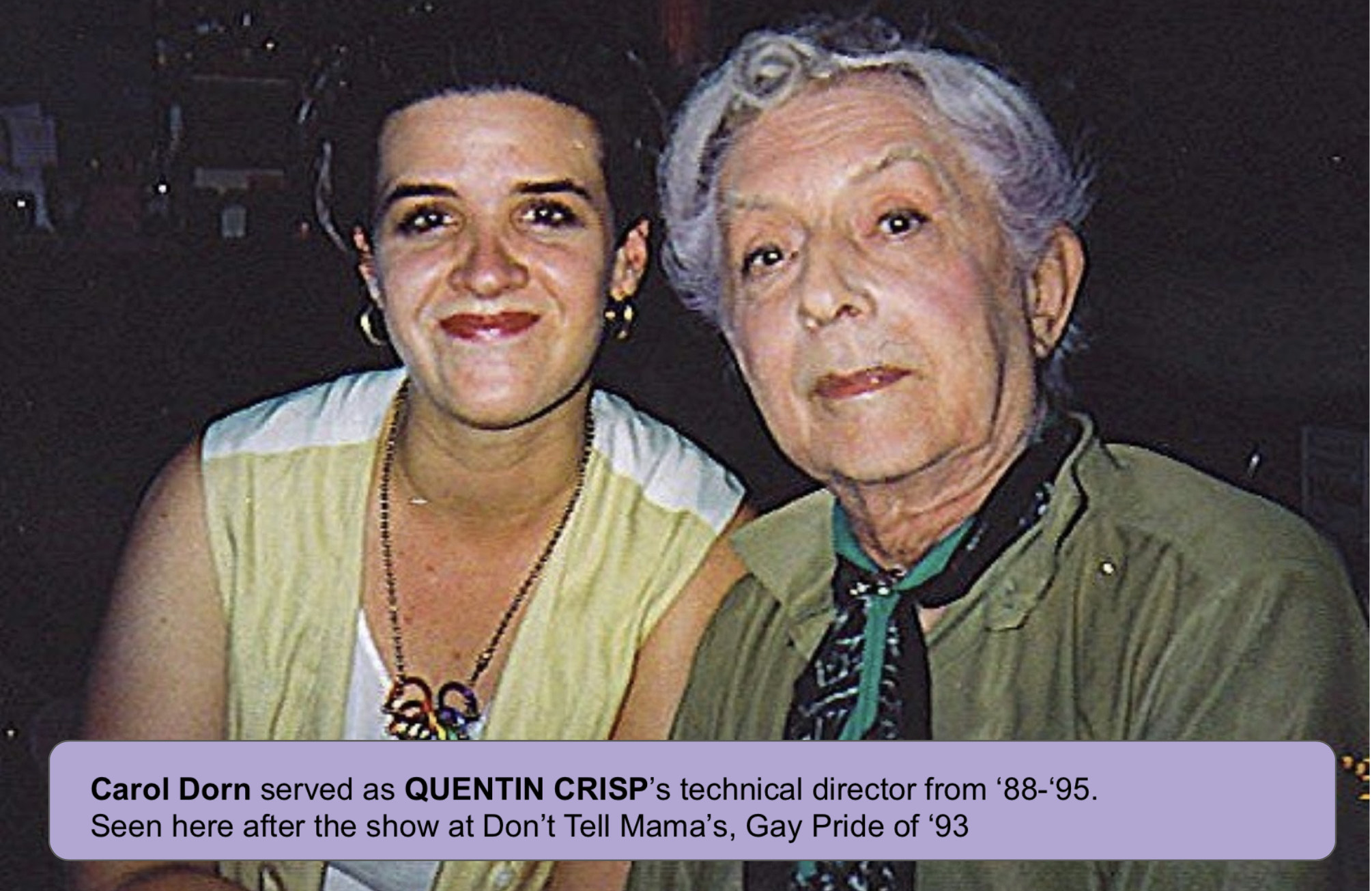Carol Dorn
Ms Dorn comes from an extensive background in theatre with such organizations as Juilliard, Lincoln Center, Williamstown Theatre Festival, off-broadway and Broadway. Her screenplays have been optioned by New Line/FineLine, Fred Brenner Films, Paramount and Universal. To film directing she brings these skills and an extensive background in lighting, music (cello scholar) and dance having worked with such prestigious companies as Ballet Hispanico and also a collegiate background in fencing (Nationally ranked in the top 20). Currently she is developing a feature based on her play DISCLOSURE FROM A CLOAKROOM which premiered in London at the Tristan Bates Theatre.
Your project has entered in our festival. What is your project about?
The project revolves around a woman residing in London who is grappling with profound grief following the loss of her husband. As she navigates the challenging process of grieving, she gradually realizes that life still holds possibilities for her. Determined to embrace her newfound resilience, she sets out on a journey to regain a sense of normalcy. Along the way, she unexpectedly develops feelings for someone entirely different from her late husband. Although the bond she shared with her husband was extraordinary and irreplaceable, she opens herself up to the possibility of a unique connection with this new person. With caution yet bravery, this short film captures the transformative moment in her life as she seeks to move forward.
Your project has entered in our festival. What is your project about?
The project revolves around a woman residing in London who is grappling with profound grief following the loss of her husband. As she navigates the challenging process of grieving, she gradually realizes that life still holds possibilities for her. Determined to embrace her newfound resilience, she sets out on a journey to regain a sense of normalcy. Along the way, she unexpectedly develops feelings for someone entirely different from her late husband. Although the bond she shared with her husband was extraordinary and irreplaceable, she opens herself up to the possibility of a unique connection with this new person. With caution yet bravery, this short film captures the transformative moment in her life as she seeks to move forward.
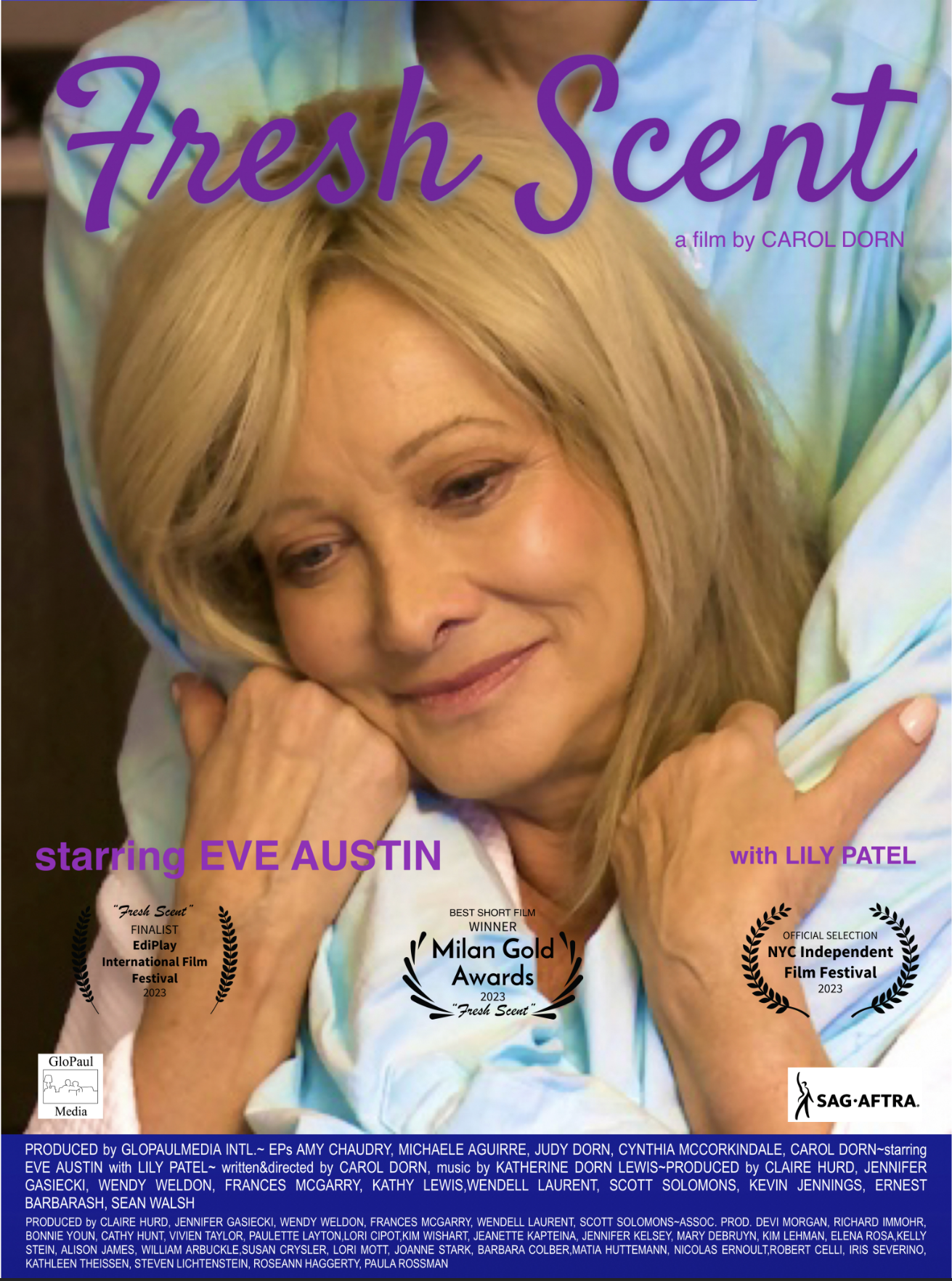
What are your ambitions with your project?
The ambition for this project is to expand it into a feature film. It serves as a standalone story but also acts as a complementary narrative to the main character of a play called "Disclosure from the Cloakroom," which initially debuted at the Tristan Bates in Covent Garden in 2000. Currently, I am working alongside EP Amy Chaudry, who is actively seeking partners and investors to support the production. The ultimate goal is to start filming in London next summer, with the aim of bringing this project to life on the big screen.
Tell us something about your shooting? What pleasantly surprised you?
During the shooting process, there were a few notable aspects that pleasantly surprised me.
Firstly, I had the opportunity to collaborate with Eve Austin, who was located in California at the time. We had been talking for a few years about doing a project so this felt right. So to ensure her involvement, I personally flew out to California and filmed her over the course of two days. When I returned, I had a tight deadline to meet for Cannes submission, so I edited the footage within 24 hours. This adventurous approach added an exciting element to the shoot.
Additionally, I was fortunate to receive unexpected support from a couple of my friends based in Los Angeles, who came to my aid and became part of my crew. Although I still handled the camera work, sound work, and direction, having their assistance allowed me to delegate tasks such as fetching batteries or relaying messages to the makeup team. This support made the process smoother, despite the usual challenges that arise during filming.
Lastly, just before starting the shoot, my computer unexpectedly malfunctioned. As a result, I had to rely on a friend's old Mac to carry out the editing process. This presented a significant challenge, but I persevered and managed to overcome it.
Overall, these surprises and obstacles added a sense of adventure and resilience to the shooting experience.
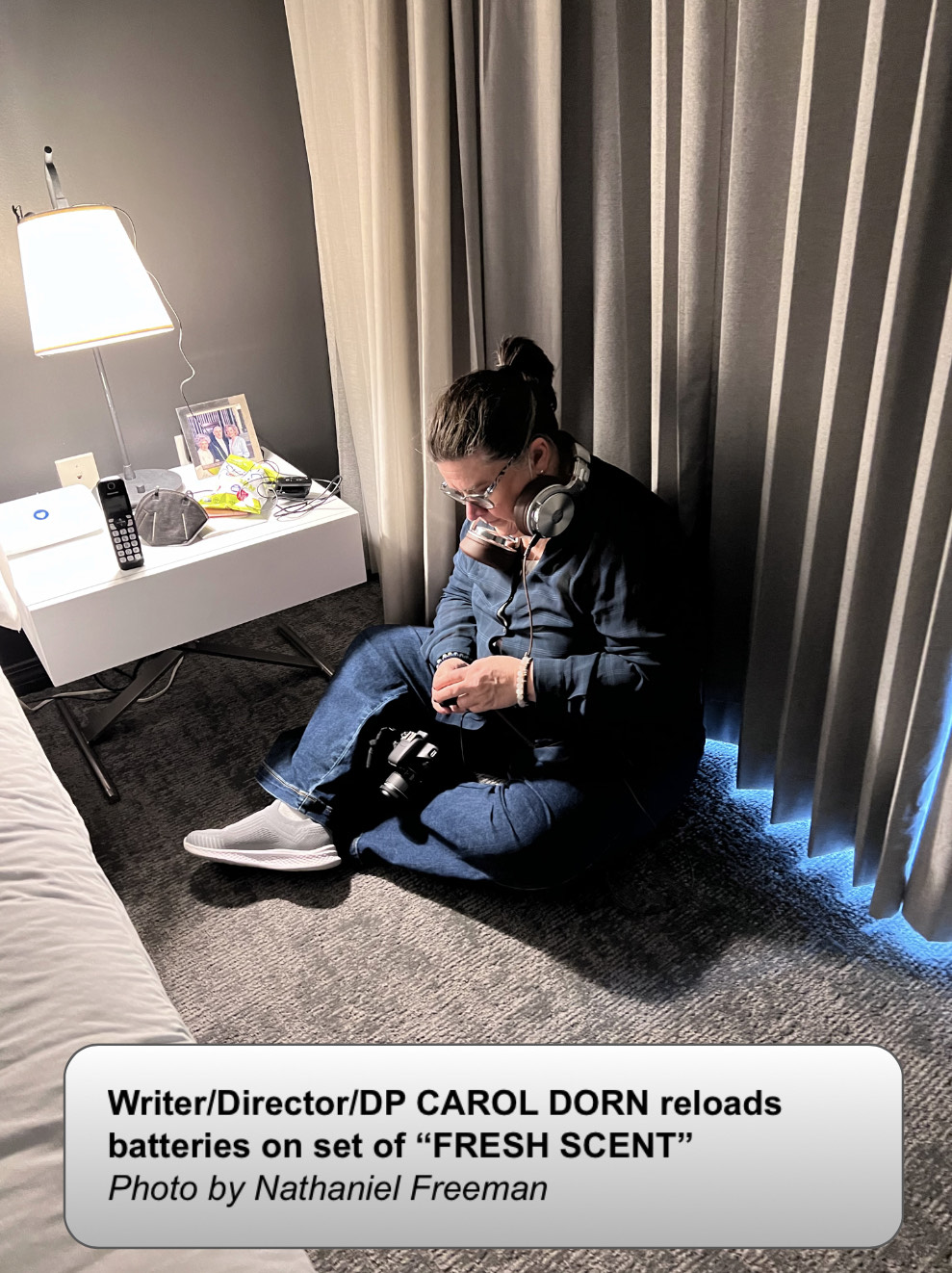
For what group of spectators is your film targeted?
The film is intended for multiple target audiences. Primarily, it caters to adult viewers who believe in the essence of letting love guide them. Older women, in particular, may deeply resonate with the protagonist's journey and experiences. Also, the film aims to engage and resonate with the lesbian, bisexual, and curious communities, as it explores themes of love and connection within that context. However, the film also appeals to a broader audience who are interested in gaining insight into the personal struggles and triumphs of individuals navigating challenging life transitions. In essence, the film seeks to captivate and inspire a diverse range of viewers, regardless of their specific backgrounds or orientations.
Why should distributors buy your film?
Distributors should consider acquiring our film for several compelling reasons. Firstly, the film's storyline holds broad appeal due to its universal themes on love. It revolves around a woman in the latter part of her life, which resonates with a significant portion of the theater-going audience. In fact, statistics show that 65% of the current theater audience comprises women over 50, indicating a built-in large audience for this type of narrative.
Our film serves as a standalone piece within a larger feature project. By acquiring this film, distributors gain the opportunity to be part of a broader cinematic experience. This opens the door for further exploration and expansion of the story, potentially attracting an even wider audience and providing additional revenue streams.
To summarize, distributors should consider purchasing our film because it offers the potential for a broad reach, targeting a significant portion of the theater-going audience. Additionally, it serves as a stepping stone to a larger feature project, allowing for future growth and audience engagement.
How would you specify your work? What characterizes your film?
I don't really go for one specific style as a Director and writer. The work it's self dictates the approach i will take. Or sometimes the actor will influence my strategy. In an earlier short I shot, the material was very psychologically difficult for the actress. So i printed the text into a prop meant to look like an order form and it was still difficult for her. So I worked with it and filmed her while she thought we were focusing the A camera etc... and so what was supposed to be a dark comedy became an experimental suspense psycho thriller...and i got creative in post.
I think what will always characterize my film and any film I do is that I'm not afraid of silence. I love giving an actor an opportunity for all the emotional beats of a character's evolution or revelation.
Why did you decided to become a filmmaker?
Becoming a filmmaker didn't feel like a conscious decision or choice for me. I have been involved in theater throughout my entire life, working both on stage and behind the scenes in film and television. In fact, I started creating movies with my friends on VHS tapes as far back as 1978. However, what truly propelled me forward was the realization that if I didn't take charge and make things happen for myself, no one else would. This realization motivated me to take the plunge into filmmaking.
I became driven. I researched and learned as much as I could about the craft and industry. Additionally, the advent of the digital era proved to be a game-changer, leveling the playing field and making filmmaking more accessible to aspiring creators like myself. I am grateful for the opportunities that digital technology has provided, allowing me to pursue my passion and bring my stories to life.
Becoming a filmmaker didn't feel like a conscious decision or choice for me. I have been involved in theater throughout my entire life, working both on stage and behind the scenes in film and television. In fact, I started creating movies with my friends on VHS tapes as far back as 1978. However, what truly propelled me forward was the realization that if I didn't take charge and make things happen for myself, no one else would. This realization motivated me to take the plunge into filmmaking.
I became driven. I researched and learned as much as I could about the craft and industry. Additionally, the advent of the digital era proved to be a game-changer, leveling the playing field and making filmmaking more accessible to aspiring creators like myself. I am grateful for the opportunities that digital technology has provided, allowing me to pursue my passion and bring my stories to life.
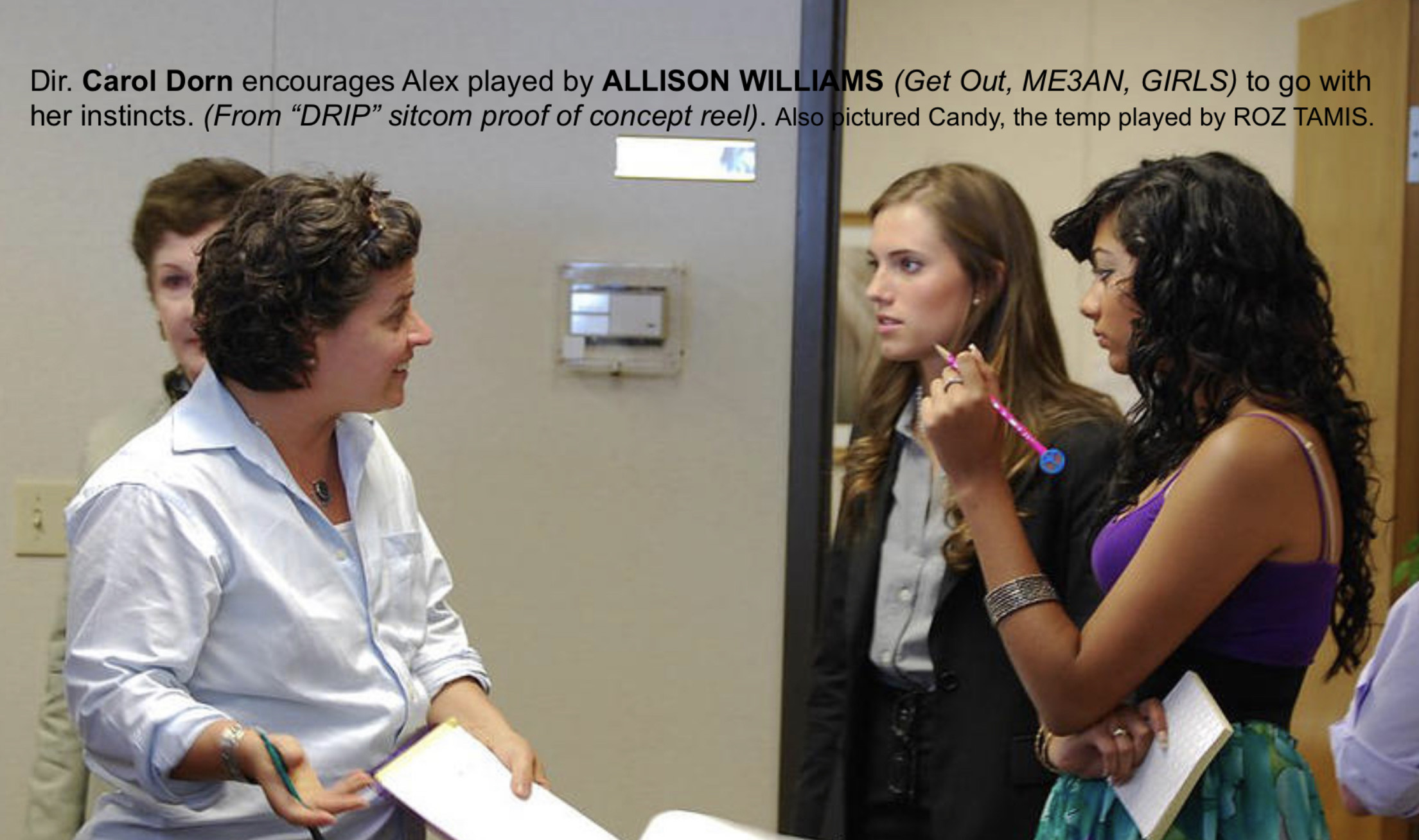
Who is your role model?
I have multiple role models in the field of filmmaking. They include:
Alice Guy-Blaché - She is a significant role model for me. As one of the first female directors in the history of cinema, her pioneering work and contribution to the medium inspire me.
Betty Porter - Her work, particularly in films like "The Party" (and of course "Orlando" ) continue to astonish me with their brilliance. Her storytelling abilities and unique creative vision have left a lasting impact on me.
Gina Prince-Bythewood - I admire her as a filmmaker for her ability to craft compelling and emotionally resonant narratives. Her films tackle important themes and showcase powerful character development. I am also proud to say we are both members of the New York WOmen In Film & Television organization.
Pedro Almodóvar - His distinctive style and exploration of complex characters have been influential to my own approach to storytelling. His ability to blend genres and create visually stunning films is truly inspiring. I was first introduced to his work with WOmen on the Verge of a Nervous Breakdown. That was a revelation to me.
Ang Lee - I look up to Ang Lee for his versatility and mastery across various genres. His films display a deep understanding of human emotions and offer unique perspectives on storytelling.
Tom Topper - Principally for his work on "The Danish Girl"
Alfred Hitchcock - Hitchcock's mastery of suspense and ability to captivate audiences has left an indelible mark on cinema. His meticulous craftsmanship and innovative techniques continue to be a source of inspiration. I did my undergrad paper on him and have a script I wrote years ago that is somewhat of an homage to Hitchcock.
M. Night Shyamalan - for the same reasons as Hitchcock and dare I say more for the time we are in. To me his work is breathtaking.
George Cukor- He was already thinking outside the box with The Women and many others. And his balance of humor and commentary on human behavior is brilliant.
Christopher Nolan - everything
Federico Fellini - Fellini's imaginative and surreal storytelling, as showcased in films like "La Dolce Vita" and "8½," has had a profound impact on my artistic sensibilities. His ability to create dreamlike narratives fascinates me. In fact you'll see that in FRESH SCENT to a degree.
Wes Anderson - his humor and how he is able to capture that just by the way he frames a shot
Stanley Kubrick - the truth and the silence in all that he made.
Diane Kurys - a French director who astounded me with her film "Entre Nous" based on a true story about her mother. It also starred her sister, Isabelle Hubert, who portrayed their mother. Beautifully done! I would love to see her do more.
These filmmakers (and more) have shaped the way I approach my own work and continue to inspire me to push boundaries and tell meaningful stories.
Which movies are your favorites? Why?
Choosing favorite movies is truly a challenging task as there are numerous factors that contribute to my appreciation of a film. Certainly the work of the directors I mentioned prior. Here are some movies that I particularly admire:
Oppenheimer - This film is profound. I know some people could argue the historical truths but as a cinematic experience that goes big and extremely intimate all at once.
Vertigo - I appreciate its production value and the captivating story, especially considering its time of release.
The Miracle Worker - This film excels in all aspects, from the performances to the script, leaving a lasting impact.
Dancer in the Dark - It took me by surprise and moved me deeply. Sharing its storyline with a colleague even made me sob, which was unexpected.
The Hunger - I admire its production value, editing, and distinct style, along with the exceptional cast.
Desert Hearts - This film stands out for its story, acting, and being ahead of its time. It is important to note that prior to this film, most lesbian storylines were poorly portrayed.
Crouching Tiger, Hidden Dragon - The sheer beauty and tragic nature of this film's story, combined with its visually stunning cinematography, makes it unforgettable and almost dreamlike.
The English Patient - I appreciate the acting, production values, and engaging storyline presented in this film.
The Danish Girl - The acting in this film is exceptional and leaves a lasting impression.
The Light Catcher - A short by Stina Bergman of Sweden; she astounded me with this film with absolutely no dialogue.
There are many more films that have resonated with me over the years, as each holds its own unique qualities and reasons for admiration.
Where do you look for inspiration for your films?
I primarily look for inspiration for my films in a wide range of biographical sources. This includes exploring stories that span from primordial themes to science fiction. I find inspiration in real-life experiences, historical events, personal journeys, and even futuristic concepts. By drawing from various aspects of human existence, both past and future, I aim to bring unique perspectives and narratives to the screen. This exploration allows me to tap into the rich tapestry of human experiences and create films that resonate with audiences on a deep and emotional level.
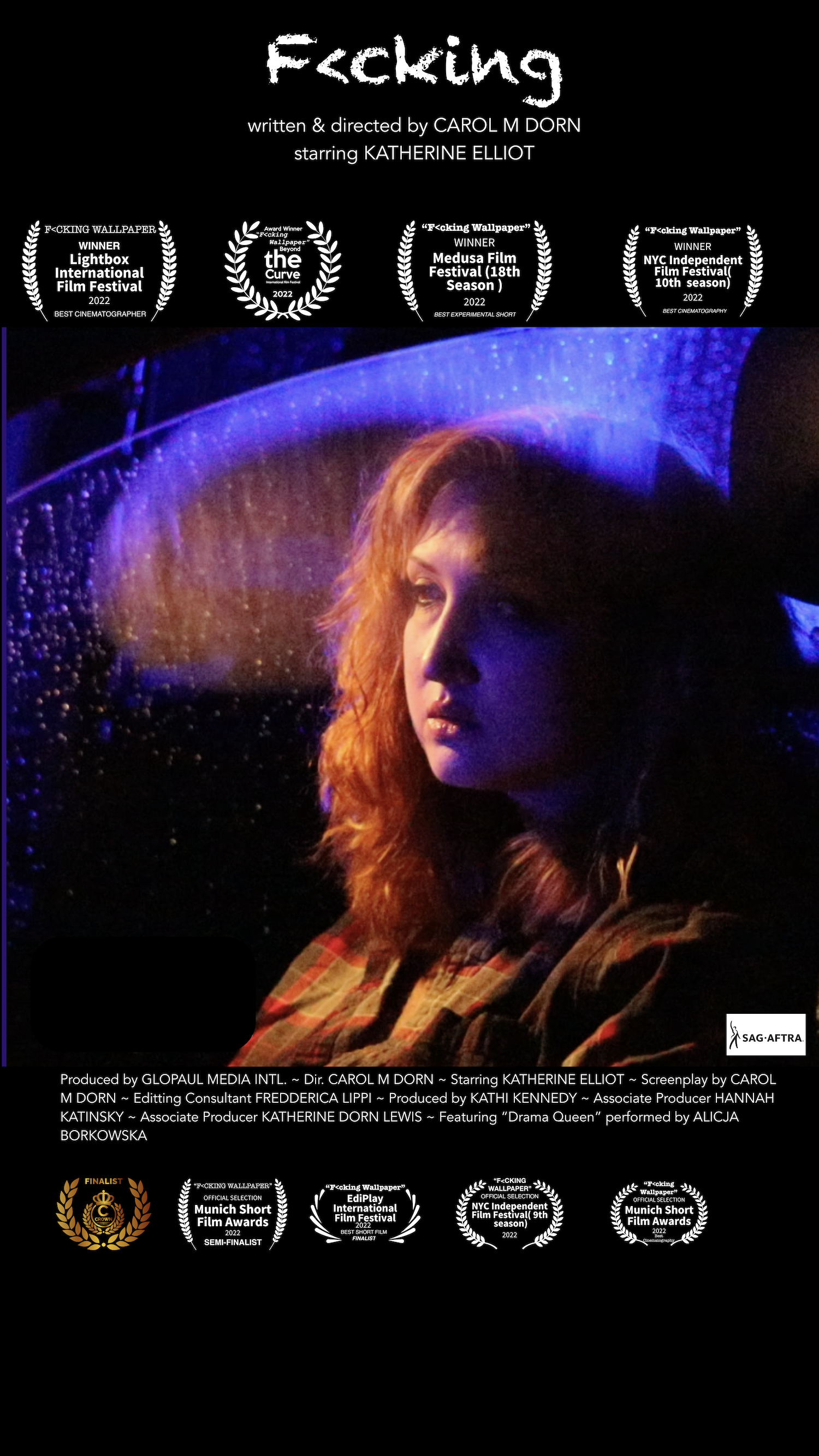

Which topics interest you the most?
I am particularly interested in two main topics: individuals who triumph over adversity and stories that revolve around the pursuit of justice.
The resilience and strength displayed by individuals who overcome challenging circumstances fascinates me. Exploring their journeys, the obstacles they face, and the personal growth they experience is a source of inspiration for me as a filmmaker.
Additionally, I am drawn to stories that tackle the theme of justice. Whether it is seeking justice on a personal level or addressing larger societal issues, I am passionate about shedding light on these topics. Examining the complexities of justice, the struggles for equality, and the pursuit of truth allows for compelling storytelling and meaningful social commentary.
By exploring these themes in my films, I hope to create narratives that inspire and provoke thought, sparking conversations and fostering a deeper understanding of the human condition.
What do you consider your greatest achievement in your career?
While I believe my greatest achievement is yet to come, I can highlight four significant milestones in my career that stand out:
Getting accepted into the Williamstown Theatre Festival as an acting apprentice. This was a remarkable accomplishment considering the intense competition, with only a few spots available among thousands of auditions. Sharing the experience with talented individuals such as Brooke Smith, Amy Redford, Jessie Walkin, and Peter Dinklage was truly inspiring.
Participating in the first reading of my initial screenplay at Robert De Niro's TriBeCa Studios, even before it became the renowned TriBeCa Film Festival. The fact that the producer chose to organize this reading for me left a profound impact on me as a writer. It was a transformative moment that shaped my perspective.
Directing readings of new works by esteemed members of the Emmy Awards at HBO's executive screening room, in collaboration with the National Academy of Television Arts & Sciences. Being entrusted with such a responsibility was a testament to my skills as a director and afforded me the opportunity to work with talented writers and industry professionals.
Being selected to direct readings for the winners of Meryl Streep and Nicole Kidman's WRITERS LAB, in partnership with NYWIFT (New York Women in Film & Television). This collaboration allowed me to work with exceptional writers, including Catherine Craig, an FX camera woman who wrote a significant and impactful script that resonated deeply. One of the scripts I directed "On the Wings" by Lyn Esta Goldman even made the shortlist for the Oscars' Nichols Fellowship.
These achievements have shaped my career and provided invaluable experiences, fueling my passion for storytelling and pushing me further in my creative endeavors.
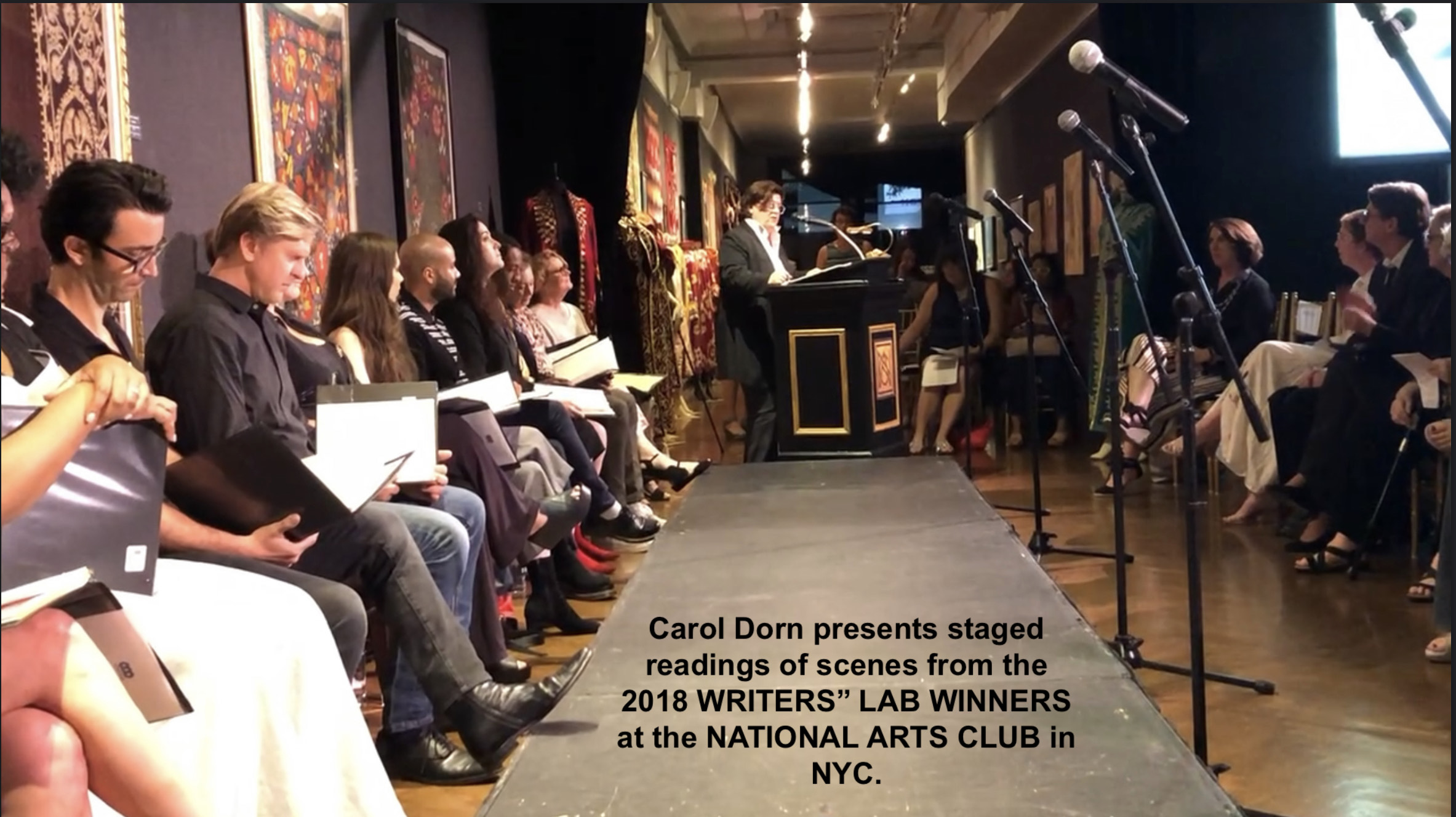
What do you consider most important about filming?
In my opinion, the most important aspect of filming is having a strong and compelling script. A well-crafted script forms the foundation of a film, providing the framework for engaging storytelling and compelling characters. Without a solid script, even the best technical aspects of filmmaking can only take it so far.
Additionally, sound plays a crucial role in the overall quality of a film. Clear and high-quality audio enhances the viewer's experience, allowing them to fully immerse themselves in the story. Paying attention to sound recording, capturing clean dialogue, and utilizing sound design effectively can significantly elevate the final result.
Similarly, good lighting is essential for creating a visually appealing and evocative atmosphere. Lighting sets the mood, highlights important elements within the frame, and enhances the overall aesthetic of the film. Thoughtful lighting choices can enhance the storytelling, convey emotions, and create a visually captivating experience for the audience.
While there are numerous elements involved in the filmmaking process, focusing on a strong script, prioritizing quality sound, and employing effective lighting techniques are key factors that contribute to creating a successful and impactful film.
I think the most important thing about filming is a good script. Then it's sound - as a priority and I'm guilty of not getting great sound sometimes - and good lighting
